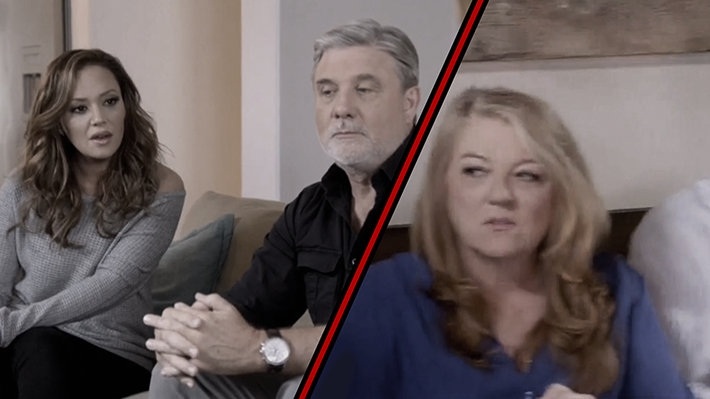
-
HOME
-
WHAT IS STANDOur Mission Our Values Our Help Contact
-
WHAT WE FIGHT FORReligious Freedom Religious Literacy Equality & Human Rights Inclusion & Respect Free Speech Responsible Journalism Corporate Accountability
-
RESOURCESExpert Studies Landmark Decisions White Papers FAQs Religious Freedom Resource Center Priest-Penitent Privilege Islamophobia Freedom of Religion & Human Rights Topic Index
-
HATE MONITORBiased Media Propagandists Hatemongers False Experts Hate Monitor Blog
-
NEWSROOMNews Media Watch Videos Blog
-
TAKE ACTIONCombat Hate & Discrimination Champion Freedom of Religion Demand Accountability
The Power of a Well-Told Story
The other day, I read an online article that spoke of how an animation studio’s approach to storytelling was repurposed and being used to sell products, ideas, and even political candidates. It reminded me that we humans are not as logical in our decision-making process as we would like to believe. Often times, it’s not facts or statistics that win the day for a political, advertising, or propaganda campaign. It’s who has the best story.

For example, older readers might remember “Mr. Whipple,” a character featured in a hugely successful, long-running series of TV commercials for Charmin toilet paper. You’ll find them preserved on YouTube to this day. As the manager of a grocery store, one of Mr. Whipple’s tasks was discouraging customers from squeezing the super-soft Charmin. But when the customers were out of sight, without fail, he would sneak a squeeze for himself. The Charmin brand dominated the toilet paper market for years, not because they had a significantly better product, but because they had a significantly better story. Consumers loved watching Mr. Whipple’s antics and hearing his catch phrase: “Please don’t squeeze the Charmin.”
The least we can do when we see the power of story being abused is to speak up.
The world’s great religions all rest upon great origin stories. There’s the Christian story of three wise men following a star to the birthplace of a child who would one day grow up to work miracles, die for the sins of mankind, and rise from the dead. This story still resonates 2,000 years after the fact. The origin stories of both the Mormon and Muslim faiths tell of visitations by angels, and how by miraculous means they received their marching orders from God. The fact there are now about 16 million Mormons and 2.2 billion Muslims on planet Earth speaks to the power of their stories.
But there are also those who use the power of story to further selfish or destructive ends.
The power of story was used by Adolf Hitler’s propaganda machine to convince the German people that they weren’t responsible for the political, social and economic problems Germany faced in the 1930s. Others were to blame. We all know the tragic end result of that perverted and blatant misuse of “story.”
In the 1950s, Senator Joseph McCarthy’s story of the dangers of Communism running rampant in public institutions and in Hollywood sparked a nationwide witch hunt that destroyed countless innocent lives.
In the 1980s, TV viewers were mesmerized by the story of evil cultists molesting children in what became known as the McMartin Preschool Case. Media soaked it up and covered every demented detail as child after child testified in court of the horrors they had been subjected to. It was a truly powerful story, but also entirely false. The children had been coached by mental health professionals and made to “remember” things that never happened. National media outlets with no interest in putting such a powerful story to bed ignored all indications that something was amiss. A District Attorney with political ambitions that far outstripped his sense of personal integrity turned a blind eye to what, in hindsight, were obvious signs that taking the case to trial was ill-advised. The end result of this 13-year misuse of story was 15 million wasted taxpayer dollars, zero convictions, scores of traumatized children, and more than a few destroyed lives.
In present day, we have yet another example of the power of story being grossly abused. This time the target is my religion, Scientology. The A&E cable network’s anti-Scientology-hate-fest-of-a-show featuring Leah Remini and a handful of disgruntled ex-Scientologists is a perfect example of a media outlet choosing profit over truth. By passing pure fiction off as fact, Remini and her co-conspirators are able to attract the same audience that so faithfully followed the equally bizarre McMartin PreSchool fiasco. Hopefully, as the need for ever more titillating episodes grows, there will come a point where the story line is so outlandish that even the dimmest of the viewing public will catch on to the ruse and change the channel.
Leah Remini and her decrepit crew are certainly small potatoes compared to Hitler or even McCarthy, but I believe sooner or later they’ll pay a heavy price for their abuse of the power of story. It just seems to work out that way. Historically, those who use it to destructive ends suffer a recoil effect. Senator McCarthy’s career came to an abrupt end when news anchorman Edward R. Murrow decided it was time the public knew the truth about him. Hitler committed suicide and his name is now synonymous with evil the world over. More than a few careers ended abruptly when the truth about the McMartin Preschool affair was finally revealed.
The least we can do when we see the power of story being abused is to speak up. It feels good to have a word with the manager of the supermarket about the hate-mongering tabloid in the checkout line. It feels good to write a timely letter to the CEO of A&E politely asking what in the world they’re thinking. It feels good to speak up when, in live conversation, somebody disparages another’s faith. Try it and you might be surprised to find that you too can wield the power of story to make a difference.









